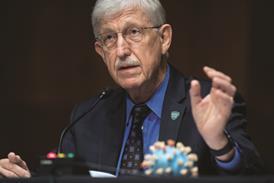When a young boy was murdered near her church, a grieving mother received lots of attention from well-meaning Christians - but no sustained professional support. A psychotherapist argues churches must offer more than prayer to help trauma survivors heal

In September 2024, a young boy was murdered just yards away from the church I attend. The news made headlines, shaking both the community and our congregation. The boy’s mother, a single parent and former church member, suddenly became the focus of attention. Pastors held vigils, church leaders spoke, and prayers were offered. For a moment, it seemed as though the entire Church had mobilised to comfort her.
Yet as weeks turned into months, the vigils ended, the speeches stopped, and the well-meaning gestures receded. Over a year later, there has been no follow-up or sustained support. Though she had once been part of the church community, there had been a rupture, leaving her without the protection, support or understanding that the institution of the Church could have offered. She was left to navigate her grief on her own.
When prayer is not enough
Her experience raises pressing questions for every congregation: when the initial crisis passes, who is truly present to listen, hold and walk alongside those living with deep trauma? How can we ensure that the vulnerable do not feel abandoned, even when the congregation believes it has done its part in supporting them? This is essential for creating a truly trauma-informed faith community. Prayer is powerful, but is it enough?
As a psychotherapist and a member of the church, I drafted a proposal for a confidential counselling service within the congregation. This was not intended to replace pastoral care or prayer, but to offer a safe space for grief, trauma and loss within the body of Christ. Counselling should not be the sole responsibility of pastors; it is a ministry that trained professionals can offer, fully aligned with spiritual care.
By offering professional, confidential support alongside spiritual guidance, we can create spaces where healing is possible
The proposal was never acted upon. In many churches, hierarchical structures and misconceptions about who can – and can’t - provide counselling stifle the support available to those in need. Pastoral counselling alone, while valuable, is often inadequate to address complex trauma.
Counselling and care
Trauma is an experience that overwhelms a person’s ability to cope, leaving lasting emotional, psychological, and sometimes physical effects. Within the Church, trauma is often invisible. Members may carry grief, loss, abuse or neglect into worship, silently struggling while others assume that prayer and spiritual guidance alone are sufficient. These wounds do not disappear when the hymns end, or the sermon concludes; they persist - and can shape a person’s engagement with both their faith and their community.
Some newcomers arrive seeking practical solutions or guidance, hoping for tools to navigate life’s challenges alongside prayer. Others may have had experiences that cannot be addressed solely through spiritual counsel. Professional counselling offers a confidential, safe space for individuals to process their experiences at their own pace, without fear of judgment, gossip or condemnation. It respects both spiritual values and societal ethical standards, bridging the gap between faith and professional care.
When the initial crisis passes, who is truly present to listen, hold and walk alongside those living with deep trauma?
Counselling also restores a sense of control to the person seeking help. In contrast to hierarchical church structures, where voices can be silenced or overlooked, professional support empowers individuals to share only what they are ready to share, when they are ready, and in a protected environment. This is particularly important for those navigating complex trauma, where trust may be fragile and vulnerability carries risk.
Better together
By recognising trauma and offering professional, confidential support alongside spiritual guidance, we can create spaces where healing is possible. Such integration allows members to grow spiritually and emotionally, feeling seen, heard and supported, regardless of where they are on their faith journey.
This does not diminish the role of spiritual care but rather strengthens it. Members feel safer, more supported and more confident in seeking help. Newcomers are welcomed without fear of being misunderstood or overlooked. The church becomes a community where people are truly seen, heard and cared for - not only in moments of public crisis, but in the quiet, ongoing work of healing.
Ultimately, trauma-informed churches embody a vision of faith that is both compassionate and practical. They honour prayer and spiritual guidance while recognising that emotional and psychological support are essential to holistic care. Prayer is powerful, but when it comes to trauma, it must be joined by listening, presence and professional care, creating a church where all members can find hope, restoration and wholeness.




































No comments yet